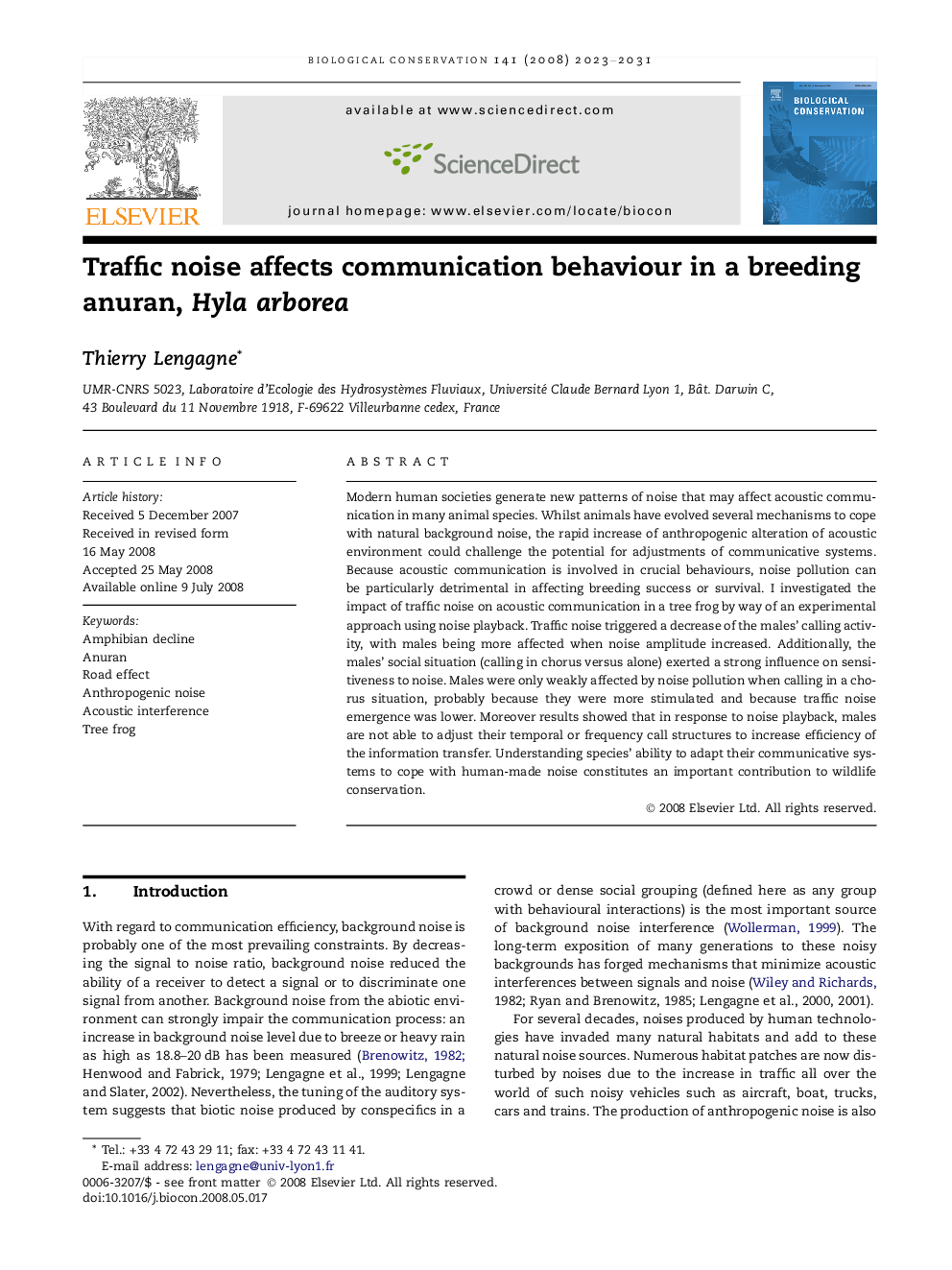| Article ID | Journal | Published Year | Pages | File Type |
|---|---|---|---|---|
| 4386785 | Biological Conservation | 2008 | 9 Pages |
Abstract
Modern human societies generate new patterns of noise that may affect acoustic communication in many animal species. Whilst animals have evolved several mechanisms to cope with natural background noise, the rapid increase of anthropogenic alteration of acoustic environment could challenge the potential for adjustments of communicative systems. Because acoustic communication is involved in crucial behaviours, noise pollution can be particularly detrimental in affecting breeding success or survival. I investigated the impact of traffic noise on acoustic communication in a tree frog by way of an experimental approach using noise playback. Traffic noise triggered a decrease of the males' calling activity, with males being more affected when noise amplitude increased. Additionally, the males' social situation (calling in chorus versus alone) exerted a strong influence on sensitiveness to noise. Males were only weakly affected by noise pollution when calling in a chorus situation, probably because they were more stimulated and because traffic noise emergence was lower. Moreover results showed that in response to noise playback, males are not able to adjust their temporal or frequency call structures to increase efficiency of the information transfer. Understanding species' ability to adapt their communicative systems to cope with human-made noise constitutes an important contribution to wildlife conservation.
Related Topics
Life Sciences
Agricultural and Biological Sciences
Ecology, Evolution, Behavior and Systematics
Authors
Thierry Lengagne,
